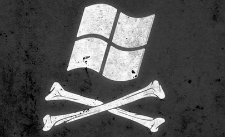 The UK’s Federation Against Copyright Theft (FACT) is probably best known for activities aimed at tracking down the operators of pirate sites and the release groups who frequent them.
The UK’s Federation Against Copyright Theft (FACT) is probably best known for activities aimed at tracking down the operators of pirate sites and the release groups who frequent them.
Financed by the film industry, over the years FACT has forged partnerships with law enforcement agencies, including the Police Intellectual Property Crime Unit (PIPCU). But while in many instances FACT’s work is reactive, the group also works in precautionary roles.
In addition to preventing individuals from recording movies in theaters, for example, FACT also runs an accreditation system that aims to hold businesses providing services to the movie and TV sector to a set of high standards. The overall aim is to protect the intellectual property owned by FACT’s members.
The latest company to achieve FACT certification is Microsoft with its cloud computing platform Azure. Launched in 2010, Azure provides PaaS (Platform as a service) and along with Amazon Web Services is considered a market leader in Iaas (Infrastructure as a service).
“Microsoft is quite familiar with global anti-piracy efforts, and we believe that extending this attention to our customers’ environments is just as important as safeguarding our own intellectual property,” says Alice Rison, Senior Director, Microsoft Azure.
“That’s why I’m excited to announce Azure’s certification by the Federation Against Copyright Theft (FACT), making Azure the first public cloud to gain this accreditation.”
To get a flavor of what FACT is trying to achieve with its certification system one only has to look at the list of companies that have already gone through the process.
There are currently 110 businesses with FACT accreditation, such as those offering subtitling services. These might not immediately sound like piracy hotspots but TV shows have been leaked at this point in the chain before, such as the high-profile pre-release of several Doctor Who episodes in 2014.
Others, such as companies and hotels involved in pre-release screenings of movies present more obvious security holes, as do those providing courier, logistics, transport and storage services. All of these processes have been exploited in the past to get pre-release content onto the Internet and now FACT is determined to regulate them all.
A handful are a little more obscure. Alchemy Metals Ltd proudly display its FACT accreditation online, noting that the company utilizes “a variety of methods to ensure your sensitive product has been damaged beyond repair and re-use.” Precisely what Alchemy Metals destroys for the industry is unclear, but operations similar to theirs have been previously been used for the “granulation” of seized computer and video games hardware.
The inclusion of registered charity His Church on the accredited list is also of interest. That organization take counterfeit clothing, DVDs, CDs and other items and removes the illegal branding. These items are then shipped abroad for re-use, thus avoiding landfill.
For Microsoft, however, it is all about keeping those involved in the movie making and distribution process safe from hackers, pirates and other ne’er do wells. Accreditation means an independent security survey and both physical and digital tests, to include security of buildings, alarms systems and CCTV, access control systems, digital security, audit trails plus staff vetting.
All of this combined establishes whether an organization meets the high standards set by FACT partners such as Universal, Disney, Sony, The Premier League and TV giant BSkyB.
“The FACT certification is yet another demonstration of the investments we’re making in not only ensuring the security of your data, but in gaining your trust as a business partner,” says Microsoft’s Alice Rison.
Of course, all of this comes at a cost. The FACT Certification Fee for each UK site is £2,100 per year. For those outside the UK the fee is the same, plus travel and accommodation expenses.
Earlier this year Microsoft met the standards required by the Motion Picture Association of America’s (MPAA) cloud security guidelines. More details of the MPAA’s Content Security Model can be found here.
Source: TF, for the latest info on copyright, file-sharing, torrent sites and ANONYMOUS VPN services.

 HDR wird es bei Netflix hauptsächlich in den eigenproduzierten Filmen und Serien geben. Und es werden weniger Stunden als vor kurzem angekündigt. (
HDR wird es bei Netflix hauptsächlich in den eigenproduzierten Filmen und Serien geben. Und es werden weniger Stunden als vor kurzem angekündigt. (
 Der FTTH-Anbieter Deutsche Glasfaser setzt sich neue Ziele: Im miserabel mit FTTH versorgten Deutschland soll der Ausbau schneller vorangehen. (
Der FTTH-Anbieter Deutsche Glasfaser setzt sich neue Ziele: Im miserabel mit FTTH versorgten Deutschland soll der Ausbau schneller vorangehen. ( Daimler ist offenbar endlich Googles Open Automotive Alliance beigetreten, die um die Einbindung von Android Auto in Fahrzeugen wirbt. Künftig dürften Mercedes-Fahrer zwischen Apples Carplay und Android Auto wählen können. (
Daimler ist offenbar endlich Googles Open Automotive Alliance beigetreten, die um die Einbindung von Android Auto in Fahrzeugen wirbt. Künftig dürften Mercedes-Fahrer zwischen Apples Carplay und Android Auto wählen können. ( Ein Erpressungstrojaner gibt vor, die Schadsoftware Locky zu sein. Doch die Entwickler der Ransomware Autolocky sollen einen dummen Fehler gemacht haben, der eine Entschlüsselung ermöglicht. (
Ein Erpressungstrojaner gibt vor, die Schadsoftware Locky zu sein. Doch die Entwickler der Ransomware Autolocky sollen einen dummen Fehler gemacht haben, der eine Entschlüsselung ermöglicht. (
 Apple hat das erst im letzten Jahr vorgestellte Macbook mit 12 Zoll großem Bildschirm nun mit Intels Core-M-Prozessor mit Skylake-Architektur im Programm. Außerdem gibt es die Farbe Rotgold und beim Macbook Air 8 GByte Speicher serienmäßig. (
Apple hat das erst im letzten Jahr vorgestellte Macbook mit 12 Zoll großem Bildschirm nun mit Intels Core-M-Prozessor mit Skylake-Architektur im Programm. Außerdem gibt es die Farbe Rotgold und beim Macbook Air 8 GByte Speicher serienmäßig. (